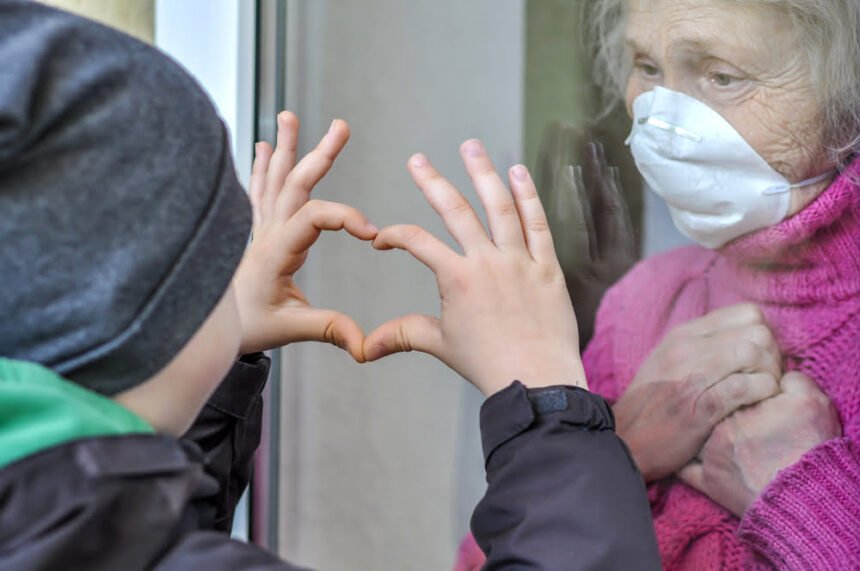All of us have to get older in life and with that comes certain necessary adjustments to maintain our health over the decades. Many elderly people may come to suffer from chronic illnesses or have deterioration in their bones and joints or in the functioning of vital organs. In fact, 80% of older adults have at least one chronic health problem.
As the schedule and daily routine of the elderly person, parent, or other loved one changes, the caretaker or offspring has to induce certain steps to ensure that the individual’s new spectrum of needs is met in an adequate way. Therefore, you have to take the right steps to stay healthy while aging.
Avoid Isolation
A lesser known and yet significant requirement of getting older is socializing with like-minded people on a regular basis. As people get old they can become lonelier and isolated which increases their stress and anxiety which in turn causes inflammation that can lead to anything from arthritis to cognitive decline.
Social isolation has a lot of negative effects on our health. Feelings of worthlessness or uselessness can make seniors withdraw into themselves which makes their relationships with family and existing friends suffer.
Regardless of whether your senior loved one is living alone, with you, or in a retirement facility, make sure they have a routine that allows them to spend time with people their own age as well as with grandchildren and nieces and nephews. Elderly people can volunteer at community centers offering their wisdom and skills and they can also join a club relating to a particular interest like golf or chess. Research has shown that elderly people that have a healthy social life can avoid developing cognitive disorders like Parkinson’s or Alzheimer’s.
A Thought-Out Supplement Routine
The National Institute of Health talks about the benefits of health supplements for seniors. While most seniors should have scheduled appointments with a healthcare provider or general physician at least every 3 months not just to monitor existing illnesses but to do preemptive testing, supplements are essential to maintaining health as one gets older. Apart from any prescribed medicine that the senior individual has to take, they (or a caregiver) should take the time to craft a thorough supplement routine to fulfill gaps in their intake.
Appetite tends to go down as someone gets older and they are likely to have deficiencies in various essential vitamins and minerals even with a healthy diet. Elderly individuals should start with a good quality multivitamin that is labeled as being for people above 50, and take vitamin C, D and E to prevent metabolic disorders, weak bones, and frequent viral or bacterial infections. Taking a supplement like fish oil or cod liver oil (in liquid or soft gel form) can lower inflammation levels and prevent and control various illnesses such as heart problems, high cholesterol, and osteoporosis.
Physical Exercise
Physical exercise is very important as one ages as it can regulate appetite, keep the weight balanced and release happy hormones like serotonin. A nice light brisk walk or an afternoon playing golf can also do wonders for high cholesterol and various health conditions. Every senior should have at least 30 minutes of fresh air and exercise incorporated into their daily routine. Depending on the state of health, low-intensity cardio or even strength training can be a good addition although, for people that need mobility aids, a physical therapist can recommend safe exercise. Advice should always be sought from a mobility equipment supplier about the most suitable mobility aid for you as some people can benefit from walking aids like walkers, scooters, or tripod canes.
Sleep Hygiene
The quality of sleep and the ability to fall asleep easily usually take a hit as an individual gets older so practicing sleep hygiene becomes essential as sleep is necessary for the regulation and repair of the body. Seniors should ideally not fall asleep during the day and maintain a strict bedtime so that they are able to get in at least 8 hours every night.
Engaging in physical activity as well as mental exercise such as reading or playing chess can promote tiredness and therefore better sleep at night. Investing in a white noise machine or even a humidifier to diffuse lavender oil or other essential oils that promote sleepiness and keeping the room cool and dark can go a long way towards a better night’s sleep.
Preventative Healthcare
Other than the supplement routine mentioned above, a great deal of the healthcare that must be practiced by a senior should be preventative in nature. Flu shots and other appropriate vaccinations should be timely administered and a healthy diet that prevents inflammation and metabolic disease should be followed. Food items included in Passover gift baskets such as fruits and nuts are incredibly healthy as snacks or small meals if your elderly loved one is struggling with their nutrient intake.

